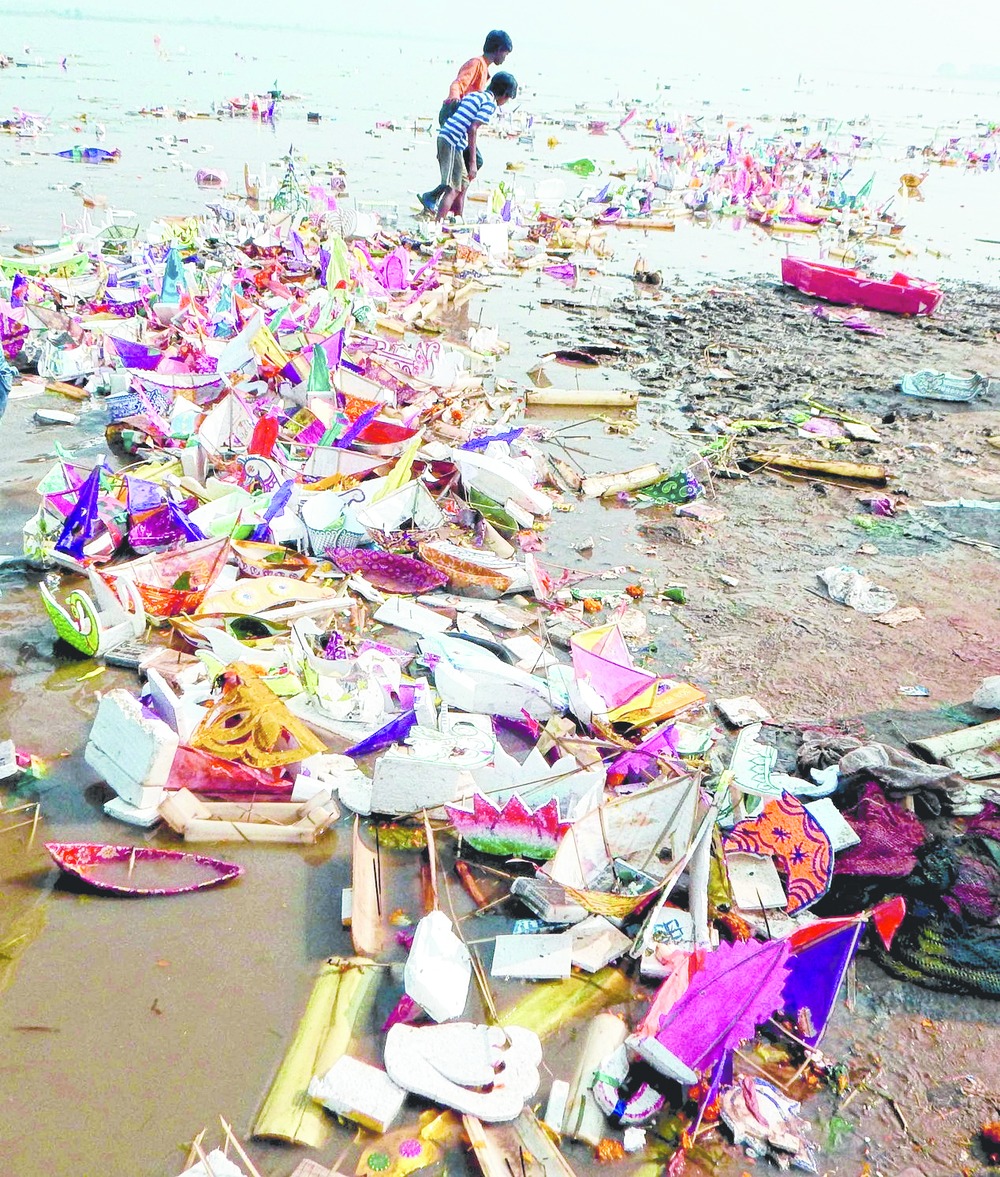
Bhubaneswar/Cuttack, Nov. 25: Celebrating the state's maritime legacy is proving to be a threat to the environment.
Miniature boats made of non-biodegradable materials, especially thermocol, were today sailed in various water bodies in the twin cities to mark the occasion of Boita Bandana.
Thermocol, a material widely used to pack electronic goods and fragile items, was first developed in 1951 by a German company named BASF. Researchers had restructured the chemical bonding of polystyrene (a synthetic petroleum product) molecules and developed the product called stretch polystyrene. Later, the substance was named thermocol, which is now being increasingly used for making the miniature boats with coloured papers - apparently due to the lack of awareness about its harmful effects.
Earlier, the toy boats used to be made out of eco-friendly plantain trunks. Over the years, it was replaced by things such as shola pith (a milky white spongy wood), which is also eco-friendly. But then came thermocol, which poses a threat to the environment.
Shola is a plant, which grows in marshy areas, and the shola pith is its cortex. The outer cover is removed by expert hands to reveal the inner soft milky white spongy material. Thermocol, on the other hand, is artificially produced in laboratories.
"Thermocol is a non-biodegradable material, which causes environmental pollution. Boat-makers should desist from using this material. The increasing trend of floating boats made of thermocol instead of the eco-friendly ones is evident of lack of awareness," said green activist P.R. Dash.
According to experts, polystyrene is obtained by polymerisation of styrene or phenylethene and the chemical properties of phenylethene are identical to polythene.
The miniature boats consisting of thermocol foam are a major component of plastic debris in the rivers and ponds. Such practice during Kartik purnima is proving hazardous to marine life and leads to the introduction of toxic chemicals to the food chain. Besides, thermocol can be lethal to any bird that swallows substantial quantities of it.
"Besides, removing the debris from water bodies only adds to the pollution of the locality where it is dumped. It responds slowly to bacterial decomposition in the soil, thus making it infertile. It also releases toxic gas on burning - which can cause respiratory problems when inhaled," said environmentalist Bijay Mishra.
"Why don't the authorities think of banning the use of thermocol in making the boats when other eco-friendly materials can be used to observe the Boita Bandana rituals?" questioned Akhaya Das, environmental activist and president of the Jala Surakhya Manch in Cuttack.
However, for the paper boat sellers, easy availability overshadows the save-environment awareness. "In terms of availability in the market, there is no alternative to thermocol for making paper boats," said Aparti Sahu, a paper boat seller at Srivihar.
Odisha State Pollution Control Board's scientist Bibekenanda Bhol said: "There is no restriction on the use of the artificial material as they are a nuisance and not pollutant. It is the job of the civic authorities to clean the water bodies."
Deputy commissioner (public relations and projects) of the Bhubaneswar Municipal Corporation Srimanta Mishra said: "The civic body will lift the miniature boats tomorrow morning. Every year after Boita Bandana, the civic body lifts around 3.5 to 4 tonnes of waste from the Bindusagar lake. The cleaning also includes other 17 major water bodies at Old Town and Lakshmisagar."
A senior official of the Swachha Bhubaneswar Abhijaan cell in the corporation said: "Out of the non-biodegradable waste, thermocol constitute almost 90 per cent.''










